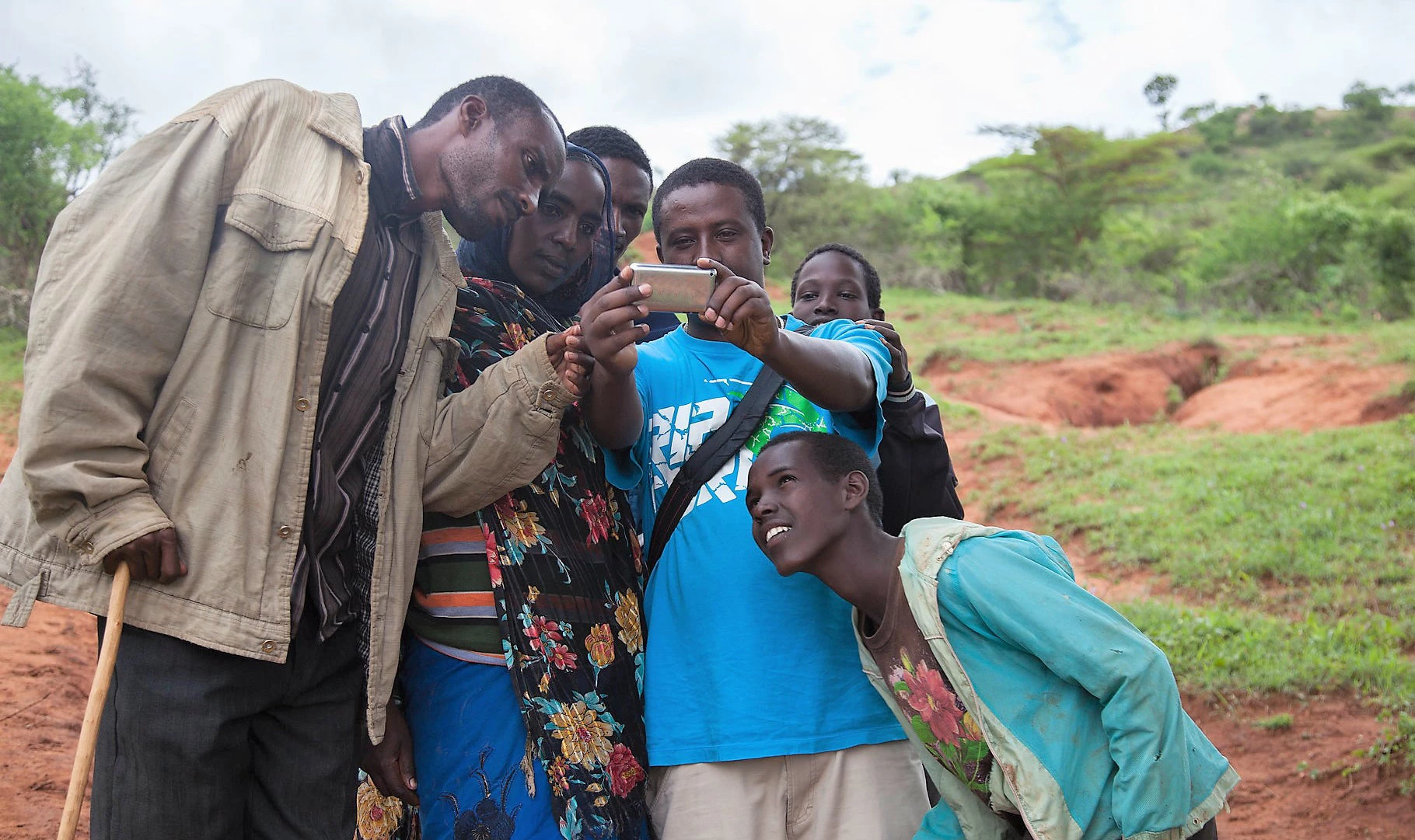 A pastoralist family looks at their picture on a smartphone in Borana, Ethiopia. Photo: ILRI/Flickr
A pastoralist family looks at their picture on a smartphone in Borana, Ethiopia. Photo: ILRI/Flickr
Ethiopia might have one of the lowest per capita incomes in Africa, yet there are many reasons to feel optimistic about its future. The country is already the fastest-growing economy in the region, boosted by its strategic location, its growing manufacturing sector, and, most importantly, a young and dynamic population of 105 million—half of whom are under the age of 18.
To keep the momentum going, however, it is critical that Ethiopia address the major challenges that have long undermined its potential. One of the major obstacles standing in the way of further development is the current state of the telecom sector, which has been stifled by a lack of innovation, a lack of regulation, and the absence of any private enterprises to compete with the state-owned operator, Ethio Telecom.
In fact, Ethiopia is one of only three countries in the world (along with Djibouti and Eritrea) that has maintained an absolute state monopoly over telecommunication services. Prices are high, while penetration rates remain decidedly low: fewer than a half of Ethiopians are mobile phone users and less than a quarter are online. These conditions have made it difficult for the country to embrace the digital economy and leverage innovations such as mobile banking, mobile money services, and mobile telecom services.
But change is coming, and it’s coming quickly. As part of an ambitious plan to modernize the economy, the government has taken active steps to shift from Ethiopia’s state-oriented development model and liberalize key sectors, including aviation, electricity, logistics—and, you guessed it, telecommunications. With technical assistance from the World Bank, the country is laying the foundations for a more innovative, more competitive telecom sector that will pave the way for a vibrant digital economy.
A first critical step in that process is the new Proclamation for the Regulation of Communications Services, which was signed into law just days ago on the 13th of June. This landmark piece of legislation introduces an entirely new regulatory framework that will allow for the development of an open telecom market, while protecting national ICT assets like infrastructure, and reinforcing consumer rights.
To make this happen, the new law provides for the establishment of an independent regulatory body, the Ethiopian Communication Authority (ECA). The agency will be responsible for regulating the telecom sector as well as the technical elements of broadcasting, and for granting licenses to new operators, in line with standard practices around the world. It will also oversee important regulatory issues, such as the spread of mobile money.
Before making any major decisions, though, the ECA will be required to consult its major stakeholders, such as consumers and private sector firms. It will be held accountable for its actions and answer directly to the Prime Minister.
Having this legal framework in place will help foster healthy competition, promote investment, and make sure all Ethiopians can have access to modern digital services. More broadly, sustained digital development will unlock a wealth of opportunities for transforming the entire economy and supporting a variety of sectors, from agriculture to health and education. This could serve as the perfect starting point for Ethiopia to realize the Digital Transformation vision, which aims to expand high-speed internet and bring the benefits of the digital economy to all African countries by 2030.
The World Bank will continue to work closely with the government of Ethiopia as it moves to implement the provisions of the new Proclamation. The major next steps in this process include the restructuring and privatization of Ethio Telecom, followed by the introduction of competition in the market.
The Proclamation for the Regulation of Communications Services and the creation of an independent regulator are critical milestones toward market competition and the establishment of independent, accountable institutions. With this ambitious reform, Ethiopia just sent a very strong signal about its determination to nurture innovation, bolster its economy, and harness the full potential of digital development.
This program has received support from the World Bank’s Digital Development Global Practice, the Digital Development Partnership, the Public Private Infrastructure Advisory Facility (PPIAF)., as well as the Global Infrastructure Facility (GIF). The program convened stakeholder consultation workshops and provided advice on areas of best practice in regulatory frameworks, competition, and licensing. The World Bank will now collaborate with the Ethiopian government on the implementation of the Proclamation for the Regulation of Communications Services.


Join the Conversation